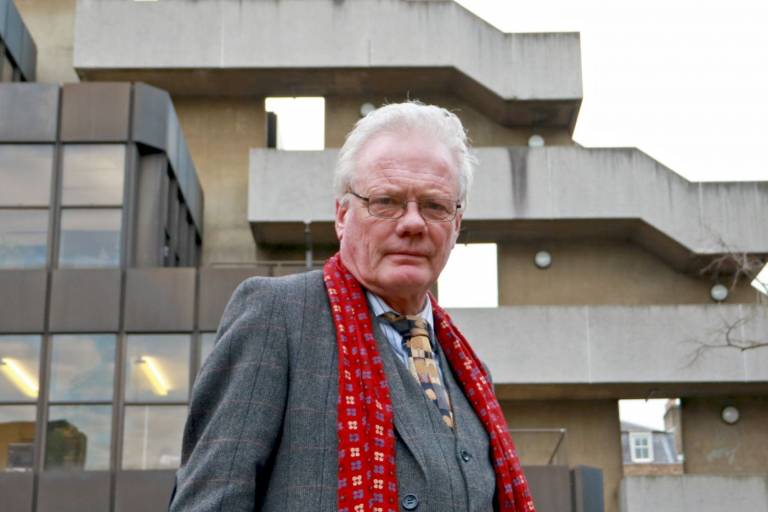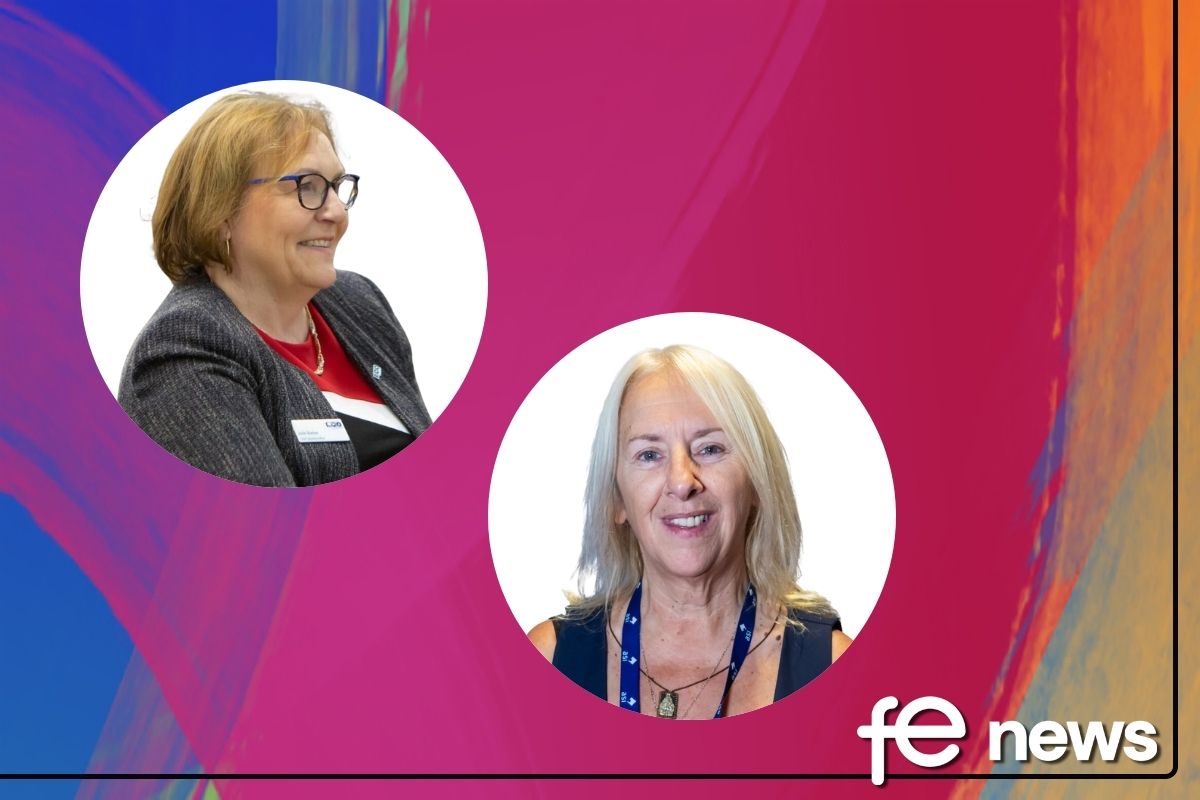Colleges as Civic Anchors in the response to COVID 19

#LoveOurColleges – Colleges sit between students and employers. As they have increased in size through recent mergers, they have become significant anchors within their communities. They sit at the centre of networks of competence.
Throughout the pandemic, and throughout the country, colleges are stepping up to help their communities.
In time it will be interesting to tell the full story, but for the moment a quick search of the web reveals a range of college contributions to help their communities at this point of crisis.
They have adapted their high levels of technical competence and community integration to bring support both to their students, and to the wider population.
East Coast College has bought 600 laptops for staff and students to ensure that “no student is left behind or disadvantaged” as institutions across the country prepare to lose months of face-to-face teaching.

The Principal, Stuart Rimmer says:
“The college has developed a model of inclusion and community focus in a time of isolation and despair for so many. Crucially, online tools such as Moodle and Pro Monitor will allow for daily contact with staff and interaction between students – to bring as much of the classroom atmosphere to the home as possible
“Like many the college is offering wrap around support: we have produced a ‘Big Book of Working from Home’, it has loads of information on everything from IT, safeguarding, HR team FAQs around contracts, how to use the online comms systems and even how to structure the working day.”
As well as to students, Milton Keynes college is offering a service to parents:
“If any members of your household have time on their hands over the coming weeks you might be interested in the College’s Distance Learning provision. We offer a number of short courses across a range of vocational areas.”
Like many others, City of Bristol College is maintaining contact with employers and apprentices:
“Contact has been made with employers using a range of different tools including Microsoft Teams, Notebook and Zoom for conferencing. The College has also been arranging various telephone and Skype interviews with employers and apprentices to maintain relationships.”
City of Glasgow college is also meeting a range of challenges:
“We continue to monitor the mental health and wellbeing of our Merchant Navy cadet officers who, as vital workers, are keeping our ports supplied with goods. We recognise and admire the delicate balancing act our seafarers have to perform in observing expert health advice while remaining on board their vessels. We also offer 24/7 online mental health and well-being support through the Big White Wall digital platform – available to all our students and staff.”
Hugh Baird College has been using technology to stream live cooking demos, host competitions and offer pastoral support as they adapt to teaching in isolation. Level 1 hospitality students have been recreating dishes made by chef lecturers at home.
College students have also been offering their newly acquired skills to support the community.
Students are using their new skills to support the community in a variety of creative ways
Students from USP College have set up an assistance service to help those most at risk during the Covid-19 crisis, offering to complete shopping trips and any other necessary excursions on behalf of the elderly and all other high-risk groups locally.
York College’s childcare students and staff have volunteered in some of the city’s childcare centres.
Staff also are drawing on their years of professional competence to aid the community
The body repair specialists at Nottingham College have used their employer links to donate over 100 sets high grade kit that had been purchased for training in the automotive industry to ensure that NHS frontline workers now have access to some of the best high-grade PPE available. The college has gone on to donate thousands of pairs of gloves and masks from other areas of its curriculum, including hair and beauty, engineering, catering and hospitality, construction, and science.
Riverside Colleges has also supplied PPE equipment to Social Care services.
York College has donated almost 800 pieces of PPE, to its local hospital. A range of masks, gloves, overalls and safety glasses, which are usually in stock for use by construction, engineering and stonemasonry students, have been handed to the York Teaching Hospital Trust.
York College principal, Lee Probert said, “Since we’ve moved to online delivery only, we decided that these should be given to front-line staff in the NHS who are saving lives.”
Meanwhile Coleg Cambria is mass producing safety visors and face masks, using its 3D printers and laser cutting machinery to manufacture PPE for frontline workers.
College manufactures safety visors and face masks for NHS and frontline workers in Covid-19 battle: @COLEGCAMBRIA is mass producing safety visors and face masks to the #NHS help in the battle against Covid-19. The north east Wales institution is using 3D… https://t.co/WRbKk92fha pic.twitter.com/sT3UsS5ZMC
— FE News – The #FutureofEducation News Channel (@FENews) April 8, 2020
The college has also donated goggles, gloves, aprons and face masks from the college’s science departments to local healthcare facilities.
Tables and chairs earmarked for exams have been donated to the Advanced Manufacturing Research Centre at Broughton to ensure social distancing as Airbus steps up its ventilator challenge and 150 people prepare to begin training and testing on-site.
Across the country colleges have opened their door to support their community
Dudley College has established a training centre within its state-of-the-art facilities for hundreds of new 999 and 111 call-handlers.
Milton Keynes College is working with the local Council to explore how their kitchens can be used to prepare food for those in need.
Day Nurseries, such as at Neath College, remain open, while Bridgwater & Taunton College has opened its residential accommodation to the homeless.
Glasgow City College has kept open two halls of residence, supporting the welfare of vulnerable students, international students, and those from elsewhere in the UK who are unable to travel home during this lockdown.

Paul Little, Glasgow City College CEO, tells me:
“City of Glasgow College is actively contributing to the national and civic resilience effort. We have been liaising with NHS Greater Glasgow & Clyde and we have engaged with the Scottish Government to highlight that we stand ready to help where we can.
“We are also supporting our local business community, working closely with both the Glasgow Chamber of Commerce and the Glasgow Business Resilience Council.”
Bristol College, too, is helping local businesses to prepare themselves to be in a stronger position to take advantage of all opportunities after the lock down is over.
East coast college has been using its kitchens to bake bread for the local community, offering a lifeline to at-risk groups facing empty supermarket shelves.
Stuart Rimmer, CEO, tells me that, post pandemic, his leadership priorities are:
“How we support our community with re-skills and re-train as industry adjusts and finds its new normal. Old strategic plans are redundant. So, I’m still thinking through priorities, but I do know they will be different!”
Exeter College Offers Accommodation to NHS Workers: #LoveOurColleges – @ExeterCollege has opened the doors of its Clock Tower accommodation to #NHS workers in need of a place to stay during the #Coronavirus (COVID-19) crisis The accommodation officially… https://t.co/lm1543WX7F pic.twitter.com/E5VSoDfOvu
— FE News – The #FutureofEducation News Channel (@FENews) April 6, 2020
The relationship between colleges and their local environment is a dynamic one
In this period of uncertainty there is a process of recalibration of the skills that society values. Colleges are already responding to the new context. The front line is now in care and supply.
Colleges have always provided courses that are based on a close scrutiny of labour market information and other intelligence that they glean from entrepreneurs and policymakers. They maintain a high state of intelligence on the needs of society.
They will take a lead on the progress and future direction of the economic system in which they are embedded. Their expertise will be crucial during the period of reconstruction and reorientation following the pandemic, when little will be the same again.
Colleges understand the interrelated nature of supply chains, and the professional and technical services necessary to support them. The relationship between colleges and their local environment is a dynamic one.
Their role within localities continues to evolve, responding to an in-depth understanding of the local economic and civic space, their provision constantly adapting to or proactively shaping the economic and civic priorities of their respective regions.
We should celebrate the response of colleges to the present emergency and support them fully as they help lead us out of it.
Paul Grainger, Co-director of the Centre for Education and Work, and Head of Innovation and Enterprise for the Department of Education, Practice and Society, UCL











Responses